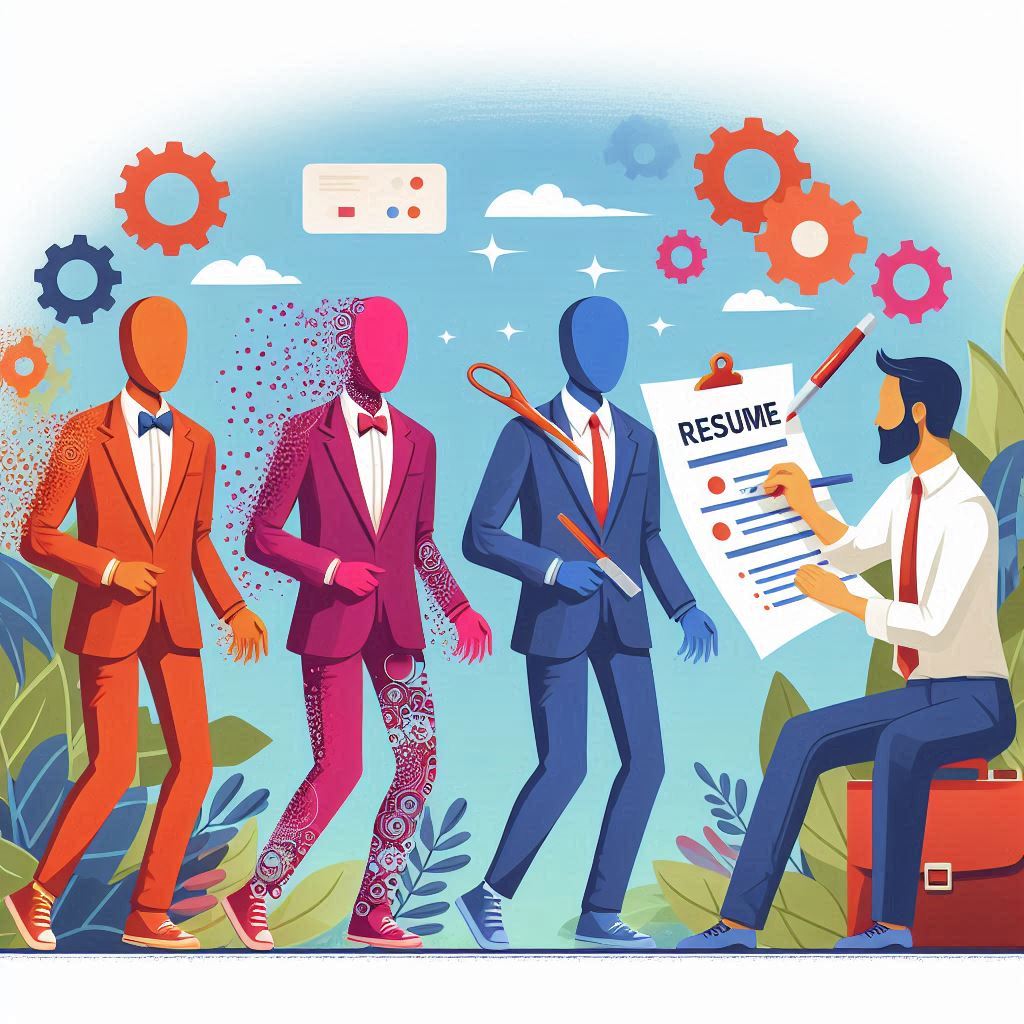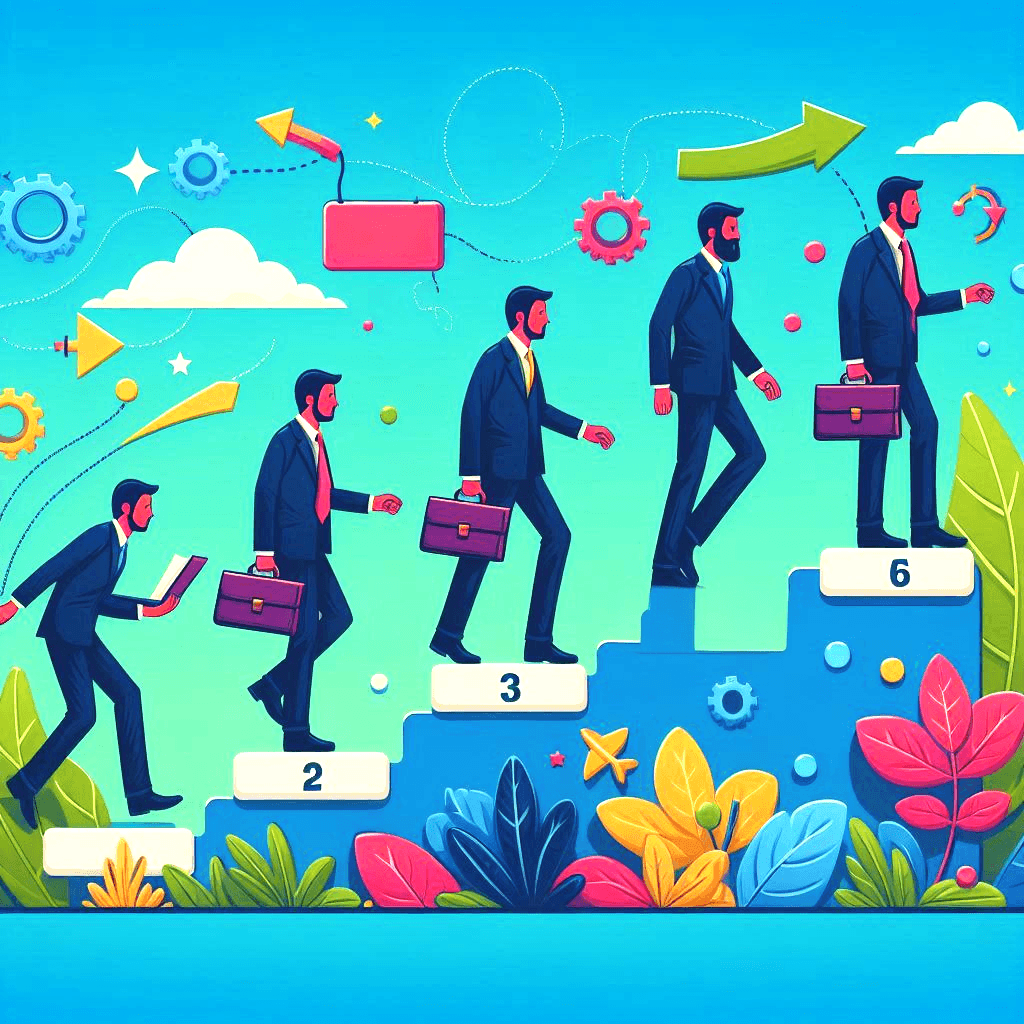Editor's Pick
Transferable Skills for Career Changers: Free AI Resume Builder
Master the art of career transition with transferable skills that open doors across industries. This comprehensive guide reveals how to identify, develop, and showcase your most valuable portable skills using proven frameworks and AI-powered tools. Learn industry-specific translation strategies, avoid common presentation mistakes, and transform your diverse background into a competitive advantage that employers actually want.
Whether you're pivoting from military to corporate, education to tech, or any career transition, discover how to leverage your existing skills for maximum impact and landing power in your target field.
Transferable Skills for Career Changers: Free AI Resume Builder
Your transferable skills are your secret weapon for career transitions. While others struggle to prove their value in new fields, smart career changers leverage portable skills that demonstrate competence across industries and unlock opportunities beyond traditional career paths.
The challenge isn't having transferable skills—it's identifying which ones matter most to your target industry and presenting them compellingly to skeptical employers.
💡 Unlock your skill potential. 1Template's AI resume builder identifies and showcases your most valuable transferable skills. Get 20 free credits and transform your background into career change currency.
Understanding High-Value Transferable Skills
Transferable skills fall into categories with varying market value. Understanding this hierarchy helps you prioritize which skills to emphasize.
Tier 1: Universal High-Demand Skills
Leadership and Management:
Team building and motivation
Strategic planning and execution
Performance management and coaching
Change management and organizational development
Budget and resource management
Communication and Interpersonal:
Written and verbal communication
Presentation and public speaking
Negotiation and conflict resolution
Cross-cultural communication
Customer relationship management
Analytical and Problem-Solving:
Data analysis and interpretation
Critical thinking and decision-making
Research and information synthesis
Process improvement and optimization
Risk assessment and mitigation
Tier 2: Technology and Technical Skills
Project management methodologies (Agile, Scrum, Waterfall)
Digital literacy and software proficiency
Database management and SQL
Basic programming concepts
Digital marketing and social media
Tier 3: Soft Skills and Personal Attributes
Adaptability and learning agility
Time management and organization
Emotional intelligence
Creativity and innovation
Work ethic and reliability
💡 Skill Prioritization: 1Template's AI analyzes your background and target role to identify and prioritize your most valuable transferable skills automatically.
The BRIDGE Method: Skill Identification and Translation
B - Brainstorm Your Experiences
Systematically inventory all experiences across categories:
Professional roles: Full-time, part-time, contract work
Educational experiences: Degrees, projects, research, leadership roles
Volunteer activities: Board positions, event organization, mentoring
Personal projects: Entrepreneurial ventures, creative pursuits
Life experiences: Travel, caregiving, military service
R - Recognize Skill Patterns
Identify recurring themes across experiences:
What tasks energized you across different contexts?
Which activities received consistent positive feedback?
What challenges did you naturally gravitate toward solving?
Which accomplishments made you most proud?
I - Inventory Specific Skills
Extract concrete skills from each experience:
Action-oriented skills: What did you do? (managed, analyzed, created, coordinated)
Knowledge areas: What did you know? (industry insights, technical knowledge, regulations)
Tools and systems: What did you use? (software, methodologies, frameworks)
Interpersonal skills: How did you work with others? (collaboration, mentoring, negotiation)
D - Determine Market Value
Research skill demand in your target industry:
Analyze job descriptions for required vs. preferred skills
Study salary data to identify high-value skills
Review industry reports on skill gaps and trends
Connect with professionals to understand real-world priorities
G - Generate Skill Narratives
Create compelling stories demonstrating skills in action:
Use STAR method (Situation, Task, Action, Result)
Quantify impact with specific metrics
Highlight challenges overcome and solutions created
Show progression and increased responsibility
E - Express Industry Relevance
Connect skills to target role requirements:
Use industry-specific language and terminology
Demonstrate understanding of industry challenges
Show how skills address specific business needs
Provide context for skill application in new environment
Industry-Specific Skill Translation
Technology Sector Transitions
High-Value Transferable Skills:
Project management → Product management: Roadmap planning, stakeholder coordination, delivery optimization
Sales → Business development: Relationship building, needs analysis, solution presentation
Education → Technical writing: Complex concept explanation, curriculum development, user-focused design
Finance → Data analysis: Statistical modeling, trend identification, decision support
Healthcare Industry Transitions
High-Value Transferable Skills:
Customer service → Patient relations: Empathy, conflict resolution, communication under pressure
Military → Healthcare administration: Process optimization, compliance management, team coordination
Education → Health education: Curriculum development, behavior change strategies, assessment design
Financial Services Transitions
High-Value Transferable Skills:
Engineering → Risk analysis: Quantitative modeling, problem-solving, systematic thinking
Retail → Client relationship management: Needs assessment, solution recommendation, service excellence
Military → Compliance: Attention to detail, process adherence, documentation management
⚡ Industry Translation: 1Template automatically translates your skills into target industry language for maximum relevance and impact.
Resume Presentation Strategies
Skills-Based Resume Format
When to Use: Significant career change or limited direct experience
Structure:
Professional Summary with skill overview
Core Competencies section highlighting transferable skills
Professional Experience focusing on skill application
Education and Certifications
Additional relevant sections (projects, volunteer work)
Combination Resume Format
When to Use: Some relevant experience with strong transferable skills
Structure:
Professional Summary targeting new role
Key Skills section with 8-12 relevant abilities
Professional Experience in reverse chronological order
Education and professional development
Skill Integration Techniques
Keywords and Phrases:
Use exact terminology from target job descriptions
Include industry-specific skill variants
Balance technical and soft skills appropriately
Demonstrate skill evolution and progression
Evidence and Examples:
Quantify results wherever possible
Include scope (team size, budget, timeline)
Show impact on business outcomes
Highlight recognition or advancement based on skills
Advanced Skill Development Strategies
Strategic Skill Building
Gap Analysis Process:
Compare your skills against target role requirements
Identify 3-5 critical skill gaps
Prioritize based on importance and acquisition difficulty
Create development timeline with specific milestones
Skill Development Methods:
Formal education: Degrees, certificates, bootcamps
Professional training: Workshops, conferences, seminars
Online learning: MOOCs, platform courses, microlearning
Experiential learning: Volunteer work, side projects, internships
Mentorship and coaching: Industry professionals, career coaches
Skill Validation and Documentation
Credentialing Options:
Industry certifications (PMI, Salesforce, Google, AWS)
Professional association memberships
LinkedIn skill endorsements and recommendations
Portfolio projects and case studies
Public speaking and thought leadership
Common Skill Translation Mistakes
The Generic Description Trap
Mistake: "Strong communication skills" Fix: "Delivered presentations to C-level executives, securing $2M in project funding"
The Industry Mismatch
Mistake: Using previous industry language instead of target industry terminology Fix: Research and adopt new industry vocabulary naturally
The Context Gap
Mistake: Listing skills without connecting to target role needs Fix: Explicitly link each skill to specific job requirements
The Overstatement Problem
Mistake: Claiming expertise beyond actual experience level Fix: Accurately represent skill level while emphasizing learning capacity
🚀 Error Prevention: 1Template's AI prevents common skill presentation mistakes while optimizing for target industry expectations.
Interview Success with Transferable Skills
The SOAR Interview Framework
S - Situation: Set context for skill demonstration O - Objective: Explain the goal or challenge A - Action: Detail specific actions taken using transferable skills R - Result: Quantify impact and learning
Addressing Experience Concerns
Proactive Strategies:
Acknowledge the transition directly and positively
Emphasize transferable skills immediately
Provide specific examples of quick learning
Demonstrate industry research and preparation
Offer trial periods or project-based work
Skill Demonstration Techniques
Case study preparation: Industry-relevant problem-solving examples
Portfolio development: Tangible evidence of skill application
Reference strategy: Contacts who can validate transferable skills
Question preparation: Thoughtful questions demonstrating industry knowledge
Real Success Stories
Military to Corporate Project Manager
Background: Army logistics officer transitioning to civilian project management Key Transferable Skills: Strategic planning, team leadership, resource optimization, risk management Strategy: Translated military operations terminology into business language, emphasized budget and timeline management Result: Secured senior project manager role with 30% salary increase
Teacher to UX Researcher
Background: High school teacher pursuing UX career Key Transferable Skills: User needs assessment, behavior analysis, curriculum design, data collection Strategy: Connected classroom observation skills to user research, emphasized empathy and design thinking Result: Landed UX researcher position at education technology startup
Sales to Data Analyst
Background: B2B sales professional transitioning to data analytics Key Transferable Skills: Customer insights, trend analysis, performance tracking, presentation skills Strategy: Highlighted experience with CRM data and sales analytics, completed data science certification Result: Became business analyst specializing in sales performance optimization
Measuring and Tracking Skill Value
Market Research Methods
Job market analysis: Track skill requirements across multiple job postings
Salary correlation: Research compensation premiums for specific skills
Industry reports: Study skill gap analyses and future demand projections
Network insights: Gather intelligence from industry professionals
Skill Portfolio Management
Regular skill audits and updates
Continuous learning plan with measurable goals
Performance tracking and achievement documentation
Market relevance assessment and pivot strategies
⚠️ Skills Intelligence: 1Template provides real-time insights into skill market value and demand trends for strategic career planning.
Frequently Asked Questions
How many transferable skills should I highlight on my resume?
Focus on 6-10 highly relevant skills with specific examples rather than exhaustive lists. Quality and relevance matter more than quantity.
Should I include soft skills or focus on hard skills?
Include both, but emphasize hard skills for technical roles and soft skills for leadership positions. Research your target industry's preferences.
How do I quantify soft skills like leadership or communication?
Use specific metrics: team sizes managed, retention rates, project success rates, training participants, presentation audiences.
What if I don't have formal experience in my transferable skills?
Include volunteer work, personal projects, education experiences, and any context where you applied these skills, even informally.
How do I address skill gaps in interviews?
Acknowledge gaps honestly, emphasize related transferable skills, and demonstrate your learning plan and commitment to development.
Transform Your Skills Into Career Currency
Join thousands who've leveraged transferable skills for successful career transitions.
🚀 Showcase Your Skills Free
✅ 20 Free Credits • ✅ Skills-Based Templates • ✅ AI Skill Identification • ✅ Industry Translation
Take Action: Unlock Your Transferable Skill Potential
Your transferable skills are more valuable than you realize. The key is identifying, developing, and presenting them strategically to open doors in your target industry.
Start leveraging your transferable skills today:
Access 1Template's skills-focused resume builder
Complete our transferable skills assessment
Let AI identify and prioritize your most valuable skills
Generate industry-specific skill presentations
Apply with confidence in your skill-based value proposition
Your diverse background isn't a limitation—it's a competitive advantage waiting to be unleashed.
🎯 Ready to Unlock Your Potential? Stop undervaluing your transferable skills. Create your skills-optimized resume with 1Template and join professionals who've transformed diverse backgrounds into career success stories.
© 2025 1Template. All rights reserved.
Your transferable skills are the bridge between where you are and where you want to be in your career. The professionals who successfully navigate career transitions don't just hope their skills translate—they strategically identify, develop, and present their most valuable abilities in ways that resonate with their target industry.
Remember: every experience you've had has equipped you with skills that matter. The question isn't whether you have transferable skills—it's whether you can articulate their value compellingly enough to open the doors you want to walk through.
Start today. Your next career breakthrough is just one well-crafted skill story away.
Build your own resume with 1template
Build your resume in 60 seconds with the most advanced AI-powered builder








